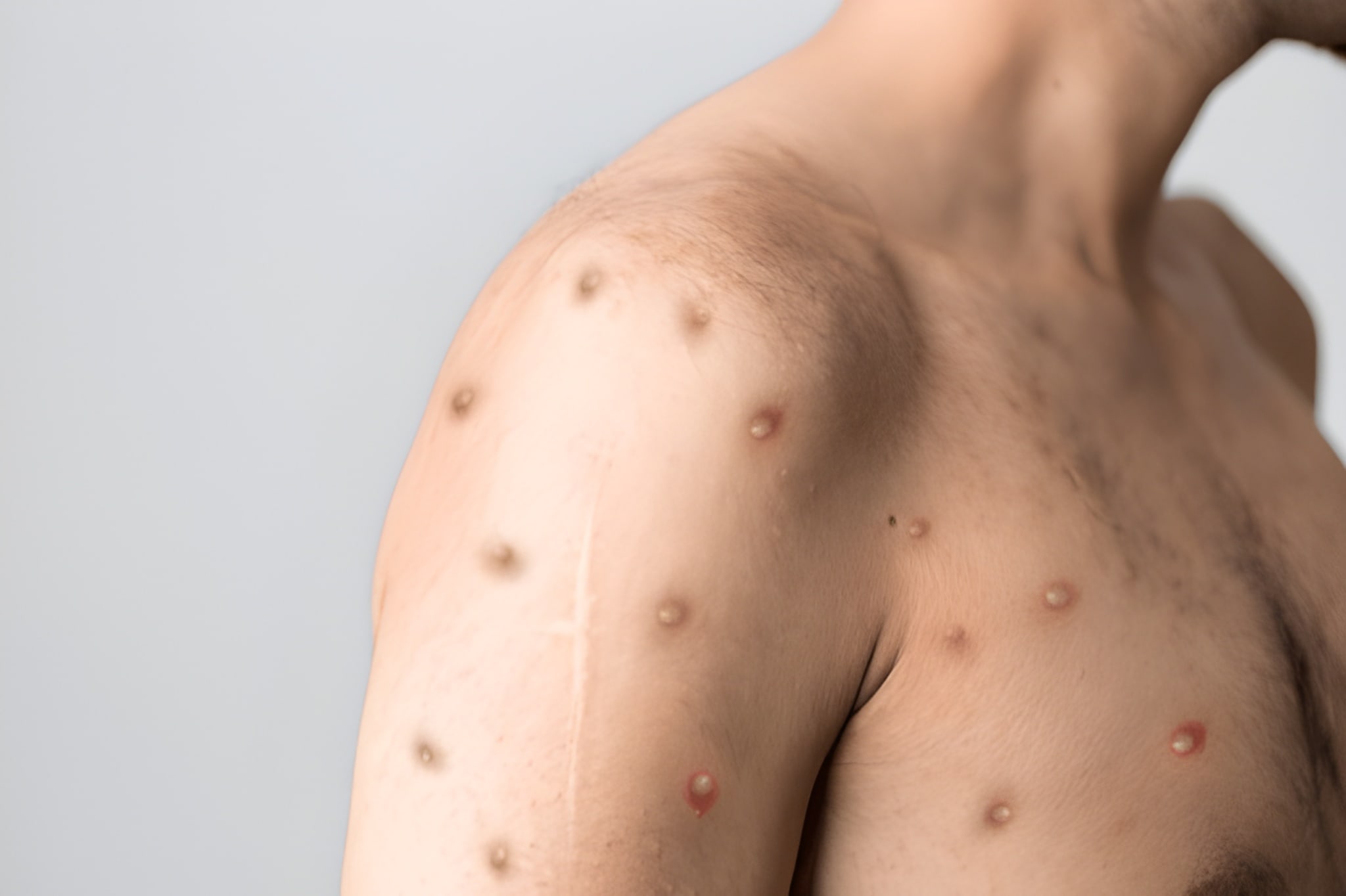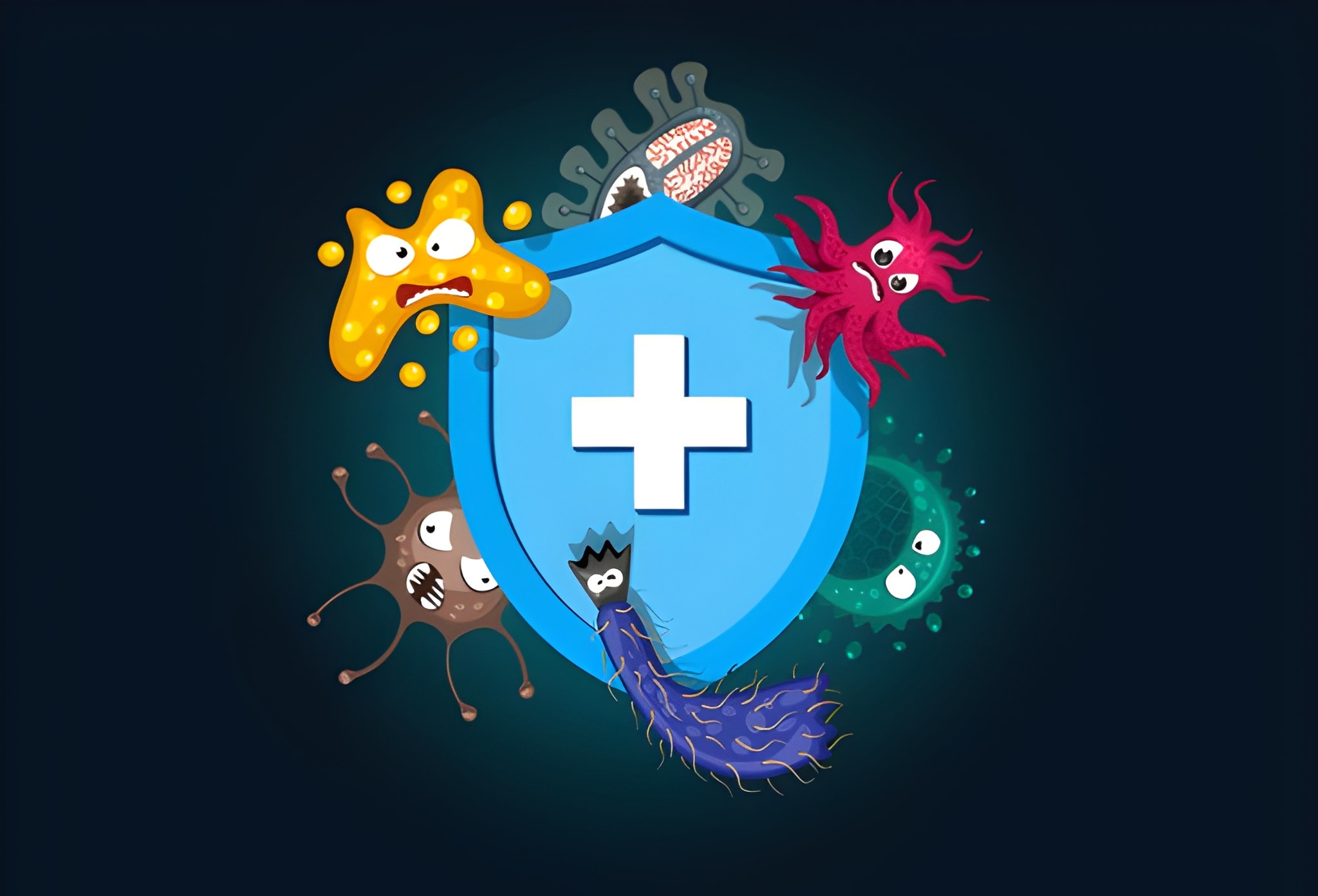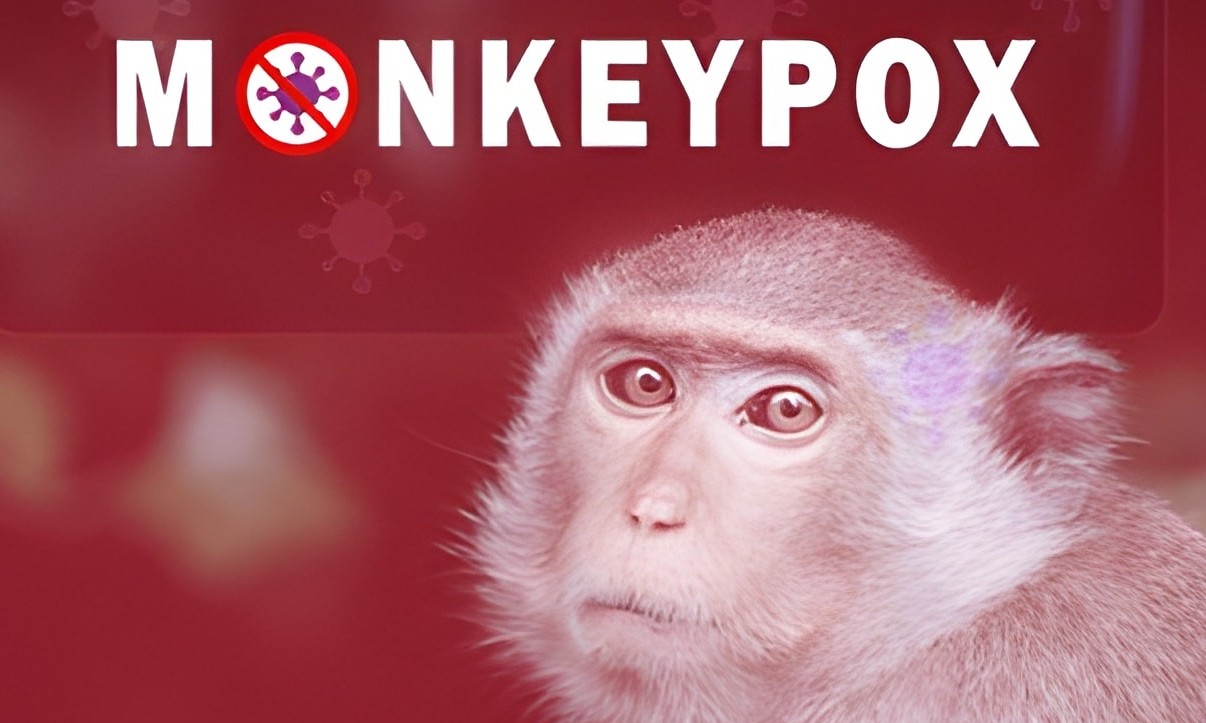Our bodies have natural immunity to viruses like monkeypox. The immune system identifies and fights off pathogens, developing protective immunity in individuals who have had the disease or been vaccinated. Memory cells enhance natural immunity, enabling a faster response to monkeypox.
The current clinical modeling study has revealed some disappointing news natural immunity to monkeypox is minimal. This means that most people are at risk of getting the infection, and unlike chickenpox, the duration of immune protection is currently unknown.
Understanding factors that impact natural immunity can aid monkeypox prevention, vaccine development, and identification of at-risk populations. Enhanced research can lead to more effective vaccines.
In this blog post, we will discuss the factors that affect natural immunity to Monkeypox, how it works, and its significance for outbreak prevention, public health, and vaccine development. We will also address some challenges and limitations researchers face in understanding natural immunity to Monkeypox.
Monkeypox Natural Immunity: 3 Mechanisms

We must explore the mechanisms safeguarding our bodies from this viral infection to comprehend natural immunity to monkeypox. We will delve into key aspects of innate immunity, such as protective immunity, the immune response to monkeypox, and the role of memory cells.
Protective Immunity
Protective immunity is the first line of defense against monkeypox. This type of immunity involves barriers that prevent the virus from entering the body and early immune responses that eliminate the virus before it can cause significant harm. Here are some of how protective immunity works:
- Skin Barrier: Our skin acts as the first line of defense, preventing the monkeypox virus from entering the body through cuts or scrapes.
- Innate Immune System: This system consists of various cells and proteins that recognize and neutralize the virus as soon as it enters the body.
- Adaptive Immune System: This system creates specific antibodies and immune cells tailored to combat the monkeypox virus. These antibodies help clear the virus and provide long-lasting protection.
Immune Response to Monkeypox
The immune response to monkeypox involves specific mechanisms targeting the virus and its antigens. The immune system has two primary mechanisms to fight against a viral infection: the humoral and cell-mediated immune responses. Here's how they work:
- Infection Detection: When the monkeypox virus enters the body, our immune system detects it as foreign and dangerous.
- Antibody Production: Specialized immune cells produce antibodies that target the virus, marking it for destruction.
- Cellular Response: Immune cells, such as T cells, join the battle to attack and destroy infected cells directly.
Role of Memory Cells in Natural Immunity
Memory cells are central to natural immunity against monkeypox. They allow the immune system to "remember" previous infections and respond more effectively to subsequent conditions. Here are some of how memory cells contribute to natural immunity:
- Memory B Cells: These cells store information about the virus and can quickly produce antibodies if the virus reappears, providing faster and stronger protection during subsequent infections.
- Memory T Cells: These cells remember the virus's unique features and help coordinate a swift response if the virus returns.
Natural Immunity to Monkeypox: 4 Factors that Affect
While natural immunity to monkeypox can prevent the disease from occurring or make it less severe, several factors can affect its effectiveness. Understanding these factors can help you take steps to protect yourself from monkeypox.
Genetic Factors
Genetic factors are crucial in determining a person's susceptibility to monkeypox. Several genes have been identified that are associated with natural immunity to monkeypox. These genes code for proteins involved in the immune response to the virus.
Certain African ethnic groups, endemic to monkeypox, show a higher prevalence of protective genes. This may explain their reduced susceptibility. Genetics plays a crucial role in our immune response to monkeypox. Key genetic factors include:
- Genetic Variation: Differences in our genetic makeup can affect our susceptibility to monkeypox. Some individuals may have genetic traits that make them more resistant to the virus.
- Inherited Immune Response: Certain genetic variations influence the strength and effectiveness of our immune response. This can determine how well our bodies fight off monkeypox.
Age and Gender
Age and gender also significantly determine the natural immunity to monkeypox. Children under 5 are more susceptible to monkeypox than older children and adults. Adults over the age of 35 tend to have a higher level of immunity to monkeypox.
Gender can also affect natural immunity to monkeypox. Some studies have shown that females have more immunity to the virus than males.
Nutritional Status

Proper nutrition is vital for a robust immune system. Here's how nutritional status affects natural immunity:
- Micronutrients: Adequate intake of vitamins and minerals, such as vitamin C and zinc, supports immune function and can enhance resistance to monkeypox.
- Malnutrition: Poor nutrition weakens the immune system, making individuals more susceptible to infections like monkeypox.
Environmental Factors
Environmental factors can also affect monkeypox immunity. People who live near animals, such as those who hunt or handle bushmeat, are at a higher risk of contracting monkeypox. Likewise, people who live in overcrowded conditions, such as refugee camps, are also at a higher risk of exposure to the virus. Consider these environmental factors:
Natural Immunity to Monkeypox: Importance
Human immunity to monkeypox is pivotal in safeguarding individuals and communities against this infectious disease. We will delve into the significance of natural immunity and its impact on various aspects of public health.
Prevention of Monkeypox Outbreaks
One of the primary benefits of natural immunity to monkeypox is its contribution to preventing outbreaks of the disease:
- Herd Immunity: As more individuals within a community develop natural immunity, the overall population becomes less susceptible to monkeypox. This phenomenon, known as herd immunity, helps prevent the virus's rapid spread during outbreaks.
- Break the Chain of Transmission: People with natural immunity act as barriers to transmission, reducing the risk of monkeypox spreading to vulnerable individuals.
Impact on Public Health
The presence of natural immunity has broader implications for public health:
- Reduced Disease Burden: Communities with a higher percentage of individuals with natural immunity experience fewer cases of monkeypox, leading to a decreased burden on healthcare systems.
- Effective Response: Natural immunity provides protection even without vaccination efforts, assisting in managing outbreaks more effectively.
Significance in Vaccine Development
Understanding natural immunity is vital for the development and improvement of monkeypox vaccines:
- Research Insights: Studying natural immunity helps researchers identify the most effective components of the immune response against monkeypox, informing vaccine design.
- Vaccine Efficacy: By understanding how natural immunity works, scientists can evaluate the effectiveness of monkeypox vaccines and refine their formulations to enhance protection.
Monkeypox Natural Immunity: Challenges and Limitations
Understanding Monkeypox's Natural Immunity comes with its share of challenges and limitations. We'll delve into some key aspects researchers and healthcare professionals encounter when studying this intriguing topic. We'll also explore how these challenges can impact our knowledge and efforts to combat monkeypox effectively.
Limited Research Data
- Lack of comprehensive studies on monkeypox natural immunity.
- Few long-term follow-up studies on recovered patients.
- Scarce data on natural immunity's duration and strength.
Variability in Immune Responses

- Natural immunity may differ among individuals.
- Factors like age, genetics, and overall health play a role.
- Some people may have weaker or shorter-lasting immunity.
Cross-Immunity with Other Viruses
- Research indicates potential cross-immunity with smallpox.
- Limited data on cross-immunity with other poxviruses.
- Implications for vaccine development and treatment strategies.
Emerging Variants
- Monkeypox virus variants can evolve.
- Changes in the virus may affect natural immunity.
- Ongoing monitoring is required to adopt preventive measures.
Vaccination Gaps
- Not everyone receives monkeypox vaccination.
- Gaps in vaccination coverage may impact natural immunity.
- Challenges in reaching at-risk populations.
Diagnostic Challenges
- Diagnosis of monkeypox can be challenging, leading to underreporting.
- Difficulty distinguishing monkeypox from other similar illnesses.
- Impacts on tracking and understanding natural immunity.
Limited Treatment Options
- No specific antiviral treatment for monkeypox.
- Supportive care remains the primary approach.
- The role of natural immunity in recovery and treatment outcomes.
Ethical and Practical Considerations
- Ethical issues surrounding research on monkeypox in humans.
- Challenges in conducting controlled studies.
- Balancing scientific inquiry with the well-being of individuals.
Conclusion
Natural immunity to monkeypox is a complex and fascinating topic that deserves more attention. While there is still much to be discovered about how it works, we do know that it plays a critical role in preventing and controlling monkeypox outbreaks.
Natural immunity is influenced by diverse and multifaceted factors, making studying this topic challenging but rewarding. As we continue to learn more about how innate immunity to monkeypox works and how it can be improved, we can develop better ways to prevent and treat this disease.
FAQs
Current clinical modeling studies demonstrate that monkeypox immunity is minimal. Since most people have no protection against the disease, they risk contracting the infection during this re-emergence of monkeypox.
People can contract pox by touching a rash, scab, crust, saliva, or other fluids from an infected animal. People may contract pox after hunting, trapping, or processing wild animals infected in areas where pox is endemic.
The monkeypox-specific antibodies were detected in 3 wild-caught African monkeys (Cercopithecus spp.) and 3 humans collected in the Ivory Coast and Nigeria 3 to 4 years after they had suffered a pox-like infection.


![Monkeypox Natural Immunity: 3 Mechanisms [4 Factors]](https://jillm.com/wp-content/uploads/2025/10/Fibromyalgia-Decoding-the-7-Phases-and-8-Types-of-Pain-380x380.webp)
![Monkeypox Natural Immunity: 3 Mechanisms [4 Factors]](https://jillm.com/wp-content/uploads/2025/10/5-Natural-Ways-To-Boost-Your-Immune-System-While-Pregnant-380x380.webp)
![Monkeypox Natural Immunity: 3 Mechanisms [4 Factors]](https://jillm.com/wp-content/uploads/2025/10/How-Herpes-Immunity-Can-Protect-Its-Rare-Nature-380x380.webp)
![Monkeypox Natural Immunity: 3 Mechanisms [4 Factors]](https://jillm.com/wp-content/uploads/2025/10/8-Best-Ways-Other-4-Remedies-to-Build-Immunity-to-Allergies-380x380.webp)
![Monkeypox Natural Immunity: 3 Mechanisms [4 Factors]](https://jillm.com/wp-content/uploads/2025/10/Hepatitis-B-immunity-naturally-380x380.webp)
![Monkeypox Natural Immunity: 3 Mechanisms [4 Factors]](https://jillm.com/wp-content/uploads/2025/10/Immunity-to-Chicken-Pox-Development-Benefits-380x380.webp)
![Monkeypox Natural Immunity: 3 Mechanisms [4 Factors]](https://jillm.com/wp-content/uploads/2025/10/Artificial-Immunity-vs-Natural-Immunity-380x380.webp)
![Monkeypox Natural Immunity: 3 Mechanisms [4 Factors]](https://jillm.com/wp-content/uploads/2025/10/Natural-Ways-to-Boost-Immunity-Essential-380x380.webp)
![Monkeypox Natural Immunity: 3 Mechanisms [4 Factors]](https://jillm.com/wp-content/uploads/2025/10/Vaccine-Covid-vs-Natural-Immunity-380x380.webp)
![Monkeypox Natural Immunity: 3 Mechanisms [4 Factors]](https://jillm.com/wp-content/uploads/2025/10/5-Facts-About-Covid-Natural-Immunity-380x380.webp)